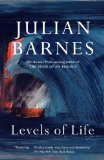Summary | Excerpt | Reading Guide | Reviews | Beyond the Book | Readalikes | Genres & Themes | Author Bio

Critics' Opinion:
Readers' Opinion:
First Published:
Sep 2013, 144 pages
Paperback:
Jul 2014, 144 pages
 Book Reviewed by:
Book Reviewed by:
Elena Spagnolie
Buy This Book
Scarcely five feet tall, she was not considered the right size for an actress; also, too pale and too thin. She seemed impulsive and natural in both life and art; she broke theatrical rules, often turning upstage to deliver a speech. She slept with all her leading men. She loved fame and self-publicity—or, as Henry James silkily put it, she was "a figure so admirably suited for conspicuity." One critic compared her successively to a Russian princess, a Byzantine empress and a Muscat begum, before concluding: "Above all, she is as Slav as one can be. She is much more Slav than all the Slavs I have ever met." In her early twenties she had an illegitimate son, whom she took everywhere with her, heedless of disapproval. She was Jewish in a largely anti-Semitic France, while in Catholic Montreal they stoned her carriage. She was brave and doughty.
Naturally, she had enemies. Her success, her sex, her racial origin and her bohemian extravagance reminded the puritanical why actors used to be buried in unhallowed ground. And over the decades her acting style, once so original, inevitably dated, since naturalness onstage is just as much an artifice as naturalism in the novel. If the magic always worked for some—Ellen Terry called her "transparent as an azalea" and compared her stage presence to "smoke from a burning paper"—others were less kind. Turgenev, though a Francophile and himself a dramatist, found her "false, cold, affected," and condemned her "repulsive Parisian chic."
Fred Burnaby was often described as bohemian. His official biographer wrote that he lived "entirely aloof, absolutely regardless of conventionalities." And he had known the exoticism which Bernhardt merely appropriated. A traveller might bring reports back to Paris from afar; a playwright would pillage them for themes and effects; then a designer and costumier would perfect the illusion around her. Burnaby had been that traveller: he had gone deep into Russia, across Asia Minor and the Middle East, up the Nile. He had crossed Fashoda country, where both sexes went naked and dyed their hair bright yellow. Stories that adhered to him often featured Circassian girls, gypsy dancers and pretty Kirghiz widows.
He claimed descent from Edward I, the king known as Longshanks, and displayed virtues of courage and truth-speaking which the English imagine unique to themselves. Yet there was something unsettling about him. His father was said to be "melancholy as the padge-owl that hooted in his park," and Fred, though vigorous and extrovert, inherited this trait. He was enormously strong, yet frequently ill, tormented by liver and stomach pains; "gastric catarrh" once drove him to a foreign spa. And though "very popular in London and Paris," and a member of the Prince of Wales's circle, he was described by the Dictionary of National Biography as living "much alone."
The conventional accept and are frequently charmed by a certain unconventionality; Burnaby seems to have exceeded that limit. One of his devoted friends called him "the most slovenly rascal that ever lived," who sat "like a sack of corn on a horse." He was held to be foreign-looking, with "oriental features" and a Mephistophelean smile. The DNB called his looks "Jewish and Italian," noting that his "unEnglish" appearance "led him to resist attempts to procure portraits of him."
We live on the flat, on the level, and yet—and so— we aspire. Groundlings, we can sometimes reach as far as the gods. Some soar with art, others with religion; most with love. But when we soar, we can also crash. There are few soft landings. We may find ourselves bouncing across the ground with leg-fracturing force, dragged towards some foreign railway line. Every love story is a potential grief story. If not at first, then later. If not for one, then for the other. Sometimes, for both.
So why do we constantly aspire to love? Because love is the meeting point of truth and magic. Truth, as in photography; magic, as in ballooning.
Excerpted from Levels of Life by Julian Barnes. Copyright © 2013 by Julian Barnes. Excerpted by permission of Knopf, a division of Random House LLC. All rights reserved. No part of this excerpt may be reproduced or reprinted without permission in writing from the publisher.





The Funeral Cryer by Wenyan Lu
Debut novelist Wenyan Lu brings us this witty yet profound story about one woman's midlife reawakening in contemporary rural China.
Your guide toexceptional books
BookBrowse seeks out and recommends the best in contemporary fiction and nonfiction—books that not only engage and entertain but also deepen our understanding of ourselves and the world around us.